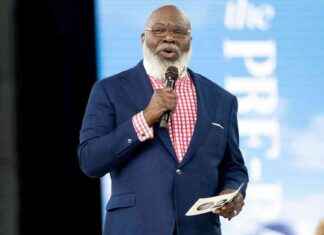There are not a few presidents who begin their journey focused on domestic affairs until, after a few years in power, they take a liking to the honeys of international politics. Especially when considering that at home their own merits are not recognized and recognition abounds abroad. Pedro Sánchez is going to intensify his international agenda between now and the end of the legislature. He seeks a leadership role in Europe, since in the midst of an economic crisis caused by the war in Ukraine, the solutions lie in influencing Brussels. The Latin American tour these days also serves that purpose.
In this interest in gaining influence in the EU, Sánchez has run into the pleasant surprise of having been invited by the German chancellor, the social democrat Olaf Scholz, to share a meeting in his country with a format similar to the one that Angela Merkel starred in with Emmanuel Macron. One of the key points of that meeting is Germany’s interest in Spain’s gas interconnections with Europe to alleviate Russia’s energy dependency.
Sánchez is devoting a good part of his speeches on his Latin American tour to establishing himself as the voice of the EU that reminds the leaders of the region that the war in Ukraine should not be alien to them, since it has consequences for inflation and the lack of food and fertilizers, which also affects their countries. One of the concerns of the European Commission is the growing influence of Russia and China in areas such as Latin America, whose countries are important for the supply of raw materials. Sánchez has decided to take that flag, although the Spanish presidency of the EU does not start until the second half of 2023.
Both Colombia and Ecuador, countries visited by the president, were opposed to the invasion of Ukraine, but it is true that there is a certain lukewarmness in some countries in the region. A battle of spheres of influence and economic models is raging as the US and Europe try to counter Russian and Chinese advance. Spain claims its willingness to counteract it in Latin America. And Sánchez has adopted an ambassadorial role in this matter. He has even stated that the EU must correct its relationship with this region and give it greater relevance.
Proof of Spanish interest in leading ties with Latin America and in underlining in Brussels that Spain plays that role is the visit that these days a delegation is also making with the president of the European socialist group, Iratxe García, to Brazil (where they will meet with Lula da Silva, who is running for the elections on October 2), Chile and Argentina (where there will be a meeting with President Alberto Fernández).
Yesterday, Sánchez himself showed his “gratitude on behalf of Europe and Spain” to the president of Ecuador, Guillermo Lasso, for having joined the condemnations against the invasion of Ukraine and in favor of economic sanctions against Russia. He insisted that it is not just a European conflict, but that it is causing a food crisis that is also affecting Latin America, especially due to the rise in fertilizer prices.
This tour will also serve Sánchez to prepare for the summit between the EU and Latin America scheduled for the second half of 2023, when Spain will hold the European presidency, just before the general elections. Also in 2023, the Ibero-American summit will take place in the Dominican Republic.
Yesterday, President Lasso dedicated the day to attending to Sánchez and the delegation of businessmen that accompanies him. Ecuador is in the midst of a campaign to attract investment and Spain is already the second country that allocates the most money to projects in that country. Despite this, no Spanish president had visited Ecuador in 20 years.








